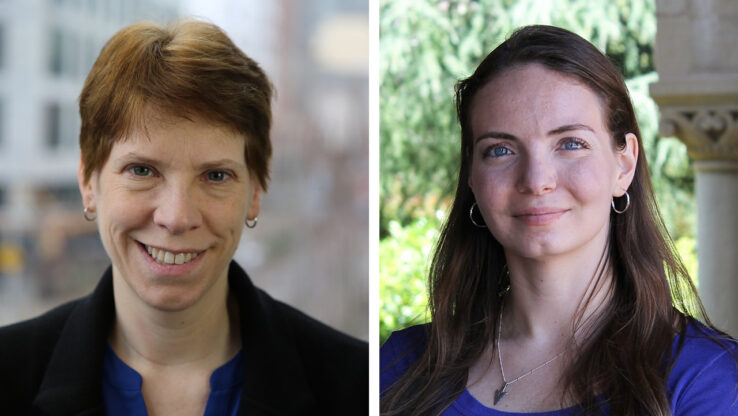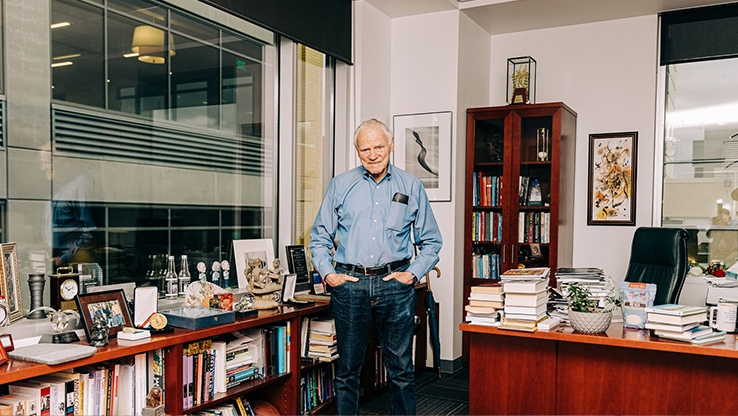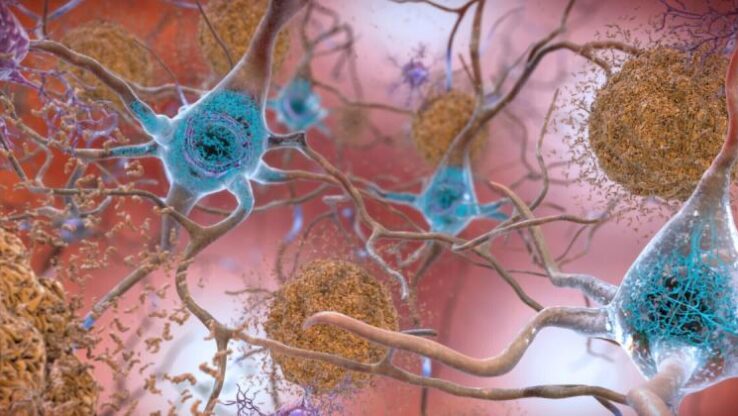This website uses cookies so that we can provide you with the best user experience possible. Cookie information is stored in your browser and performs functions such as recognising you when you return to our website and helping our team to understand which sections of the website you find most interesting and useful.
Home
at the Institute for Systems Biology
Latest News
Autoimmune Disease and Pregnancy: ISB Study Challenges Prevailing Wisdom, Unveils Nuances
An ISB-led study showed nuanced pregnancy outcomes for pregnant individuals with autoimmune disease. The findings reinforce that there isn’t a one-size-fits-all approach, and provides important new avenues for further investigation.

2023 Year in Review
Throughout 2023, ISB research has been published in impactful peer-reviewed journals and our scientists have been featured in major media outlets and popular podcasts. In this 2023 Year in Review, we showcase some of our most important and interesting highlights of the year.

Personalized Coaching Decreases Cognitive Decline in Early-Stage Alzheimer’s Disease Patients
Supplementing the standard of treatment for Alzheimer’s disease patients with personalized lifestyle coaching leads to less cognitive decline compared to standard of treatment alone, according to an ISB-led two-year study. The results were published in the Journal of Alzheimer’s Disease.

COVID-19 Vaccines and Boosters Associated with Lower Rates of Stillbirth, New ISB Study Shows
Pregnant people who are vaccinated are less likely to contract COVID-19 than unvaccinated pregnant people, and those vaccinated and boosted are less likely to get COVID than those who are vaccinated only, according to the first-ever large study of boosters and pregnancy.

Leroy Hood Wants To Show You How To Live for a Really, Really Long Time
Popular Mechanics interviewed ISB Co-founder and Professor Dr. Lee Hood for an article titled “Leroy Hood Wants To Show You How To Live for a Really, Really Long Time.” The story features Hood’s big-data approach and a focus on disease prevention – all in the quest to help us live longer.
Revolutionizing Healthcare: Exploring the Age of Scientific Wellness for Optimal Health and Disease Prevention
In their new book, “The Age of Scientific Wellness: Why the Future of Medicine is Personalized, Predictive, Data-Rich, and In Your Hands,” Drs. Lee Hood and Nathan Price introduce a new way of thinking about healthcare – a focus on preventing diseases and optimizing overall wellness.

New Alzheimer’s drugs are costly and controversial. Are we going about this all wrong?
There is tremendous market and media frenzy around new Alzheimer’s disease drugs, but their efficacy is contested while the potential of prevention is untapped and underreported, Drs. Lee Hood and Nathan Price wrote in an opinion piece published by the Los Angeles Times.

“Armchair Expert with Dax Shepard” podcast welcomes Lee Hood and Nathan Price
Drs. Lee Hood and Nathan Price, authors of “The Age of Scientific Wellness,” were interviewed by actor and podcaster Dax Sheperd about their new book, and they discussed how AI is changing the medical industry, how infectious disease has impacted our world, the effectiveness of prescriptions, and much more.



